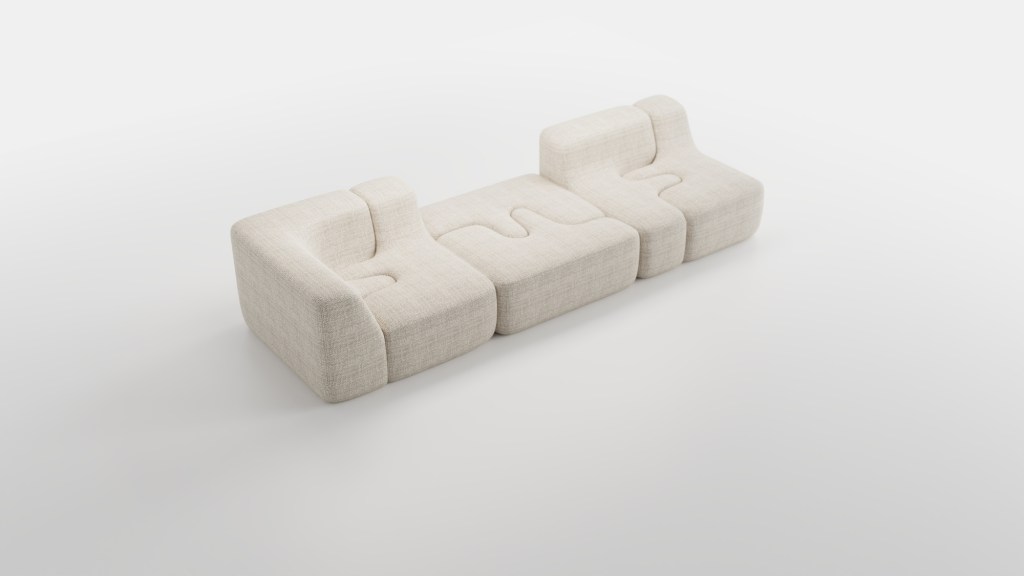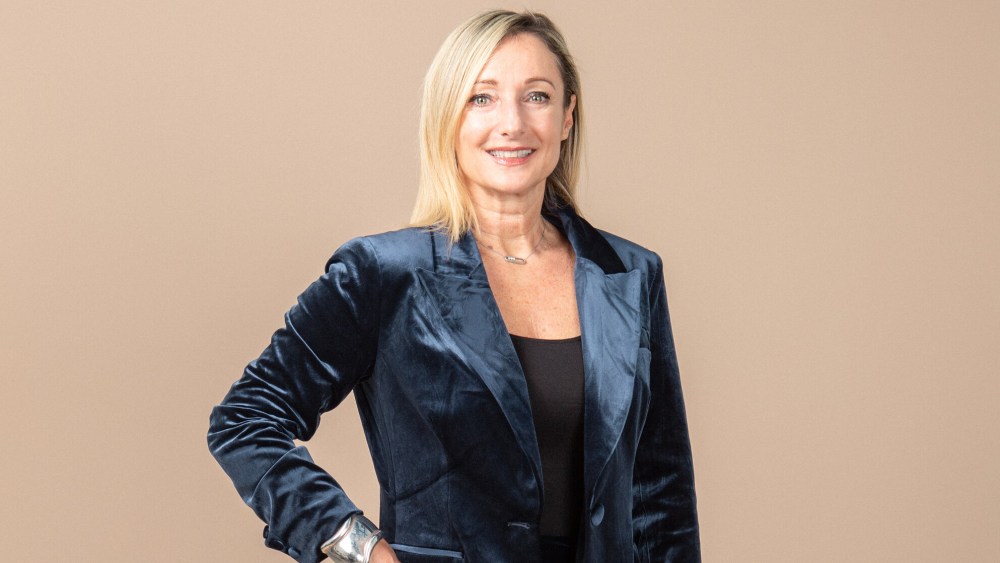MILAN — “The feedback to the new course of Fendi Casa is really very positive,” enthused Alberto Da Passano, chief executive officer of Fashion Furniture Design, or FF Design, the joint venture that Design Holding and Fendi established in 2021 to produce and distribute the Fendi Casa collections. “Clients recognize the increased attention to creativity, which is a key focus for us.”
In a preview interview at Fendi Casa’s sprawling Milan flagship near the La Scala theater, Da Passano said the joint venture “has opened up the possibility of working with the group’s panel of designers and partners, offering many new opportunities and synergies. We can leverage their experience in the industry, and their distribution prowess. Even just the exchange of opinion on the network and the markets is invaluable. We know we can rely on them to turn sketches into reality.”
While not providing a specific figure, the executive said sales doubled in 2023 compared with 2022 and that he expects further growth in 2024, while conceding there are challenges to be faced. “The Suez Canal issues have some weight in terms of logistics and delaying the arrival of the collections in stores, but perhaps my attention is more on China, which is historically an important market for us, the main one, and it’s not growing so much,” Da Passano said. “We are still in a start-up phase, though, so there are margins to grow.”
In any case, he continued, “we are working to have more balanced markets, we don’t want to be too dependent on China, as it was in the past.” Following the Shanghai flagship that opened last November, a store will open in Chengdu in August.
Fendi Casa will open stores in Riyadh and Dubai at the end of the year. “Fendi has always been very strong in the Middle East and we think there is great potential for Fendi Casa in that market,” Da Passano observed. Mirroring the fashion brand’s successful performance in Asia, Fendi Casa will open a flagship in Indonesia and Cambodia in May, a unit in Seoul in June and one in Singapore in July.
He touted the performance of the Miami store in the city’s Design District, which opened at the end of 2022. “We’ve seen a great response in the U.S. to the new Fendi Casa, and there is a lot of interest for the brand in America.”
Last October, the company partnered with Mass Beverly for a new unit in Los Angeles. More stores are in the works this year and in early 2025 in North America, with openings expected in Naples, Fla., Atlanta, Chicago and Montreal.
Last year directly operated stores represented 30 percent of total sales. “[Following the joint venture] the changes have been radical, and through our stores we can transmit and better explain the new Fendi Casa aesthetics, so now the job is to be as effective in the stores that are not managed by us and which are the majority,” Da Passano said. These total around 50, of which 14 are monobrand; the others are shops-in-shop, dedicated areas and corners, he said.

Da Passano said contract represented 20 percent of sales and the rest is derived from the wholesale channel.
Fendi Casa is working on a residential project in Crans-Montana, Switzerland. “We present the projects to Fendi and the maison approves them but the approach is very selective, there will be only a few, very high-quality and beautiful, in prestigious locations,” said Da Passano, adding that a residential development in Seoul is being built, and another is in the pipeline in Phuket, Thailand. “The Fendi brand is very strong and it is key to maintain its exclusivity in contract as well, selecting the projects well.”
Online is not a channel that has been developed yet, and accessories such as pillows or gifts are distributed through Fendi’s own online platform. “Other brands in the [Design Holding] group have started selling online, but we are approaching this cautiously,” he said.
Da Passano underscored that Fendi Casa continues to single out and “give voice” to a number of designers that contribute to “exploring new paths” and offer newness, although consistent with the brand’s design aesthetics. However, “we don’t really think of these as collaborations, as the designers conceive the products thinking of Fendi, channeling their creativity into the Fendi world,” he opined.
An example is the Peekasit sofa designed with Controvento design studio, inspired by Fendi’s signature Peekaboo bag. It’s structured in leather, and in the store it was displayed with fluffy shearling upholstery and featuring similar metal and leather details seen in the Peekaboo bag.
“It is key that the objects show references that connect the furniture to the Rome-based luxury label, consistent with Fendi’s style and luxury positioning,” Da Passano said.
This year, the brand is introducing the F-Stripes sofa with Milanese architect studio Palomba Serafini, of husband-and-wife duo Roberto Palomba and Ludovica Serafini, with tone-on-tone top stitching on the leather of the wide straps that embrace its volume, and linear cushions.
The combination of the FF logo is rendered in three dimensions, making the new Fendi F-Affair modular sofa, designed by Controvento, seem like a puzzle of interlocking elements, which can be diversified with materials and colors. The Efo table by Peter Mabeo, introduced at Design Miami in 2021, this year is presented in a new version, the first to offer soft, bevelled Fs.
Designed by Toan Nguyen, the Soho4 sofa and the Junto small side tables in glossy and opaque metal that fit together like shirt cufflinks, and the FF Kiss coffee tables by young Belgian designer Jonas Van Put are also among the new entries.
Thierry Lemaire’s Parsifal sofa is now complemented by the Mrs. Parsifal armchair, with its voluminous proportions punctuated by two cushions in Fendi’s signature Pequin logo-motif and Stefano Gallizioli’s Adrian and AudreFe chairs join the Audrey chair, one of the collection’s bestsellers.

Asked about foregoing a presentation at the Salone del Mobile fairgrounds, looking around the store, Da Passano pointed out that “this is our home, a point of reference and it’s a big investment for us so it’s almost natural to show here; we have the right space and we address the final client. It’s similar to what fashion brands do during fashion week, showing at their own headquarters.”
Upholstery — sofas and armchairs — are among Fendi Casa’s bestsellers, representing around 45 percent of sales, and “especially those that are clearly Fendi, such as the Peekasit, the Five, and the Parsifal — almost half of our clients are Fendi customers. In any case, we often sell a room in its entirety,” he said, pointing to a Metropolis table with arches reminiscent of those in the Palazzo della Civiltà building at Fendi’s headquarters in Rome.
Design Holding is jointly controlled by Investindustrial and The Carlyle Group. Founded in November 2018, Design Holding comprises design, furniture and lighting companies B&B Italia, Flos and Louis Poulsen, among others.


